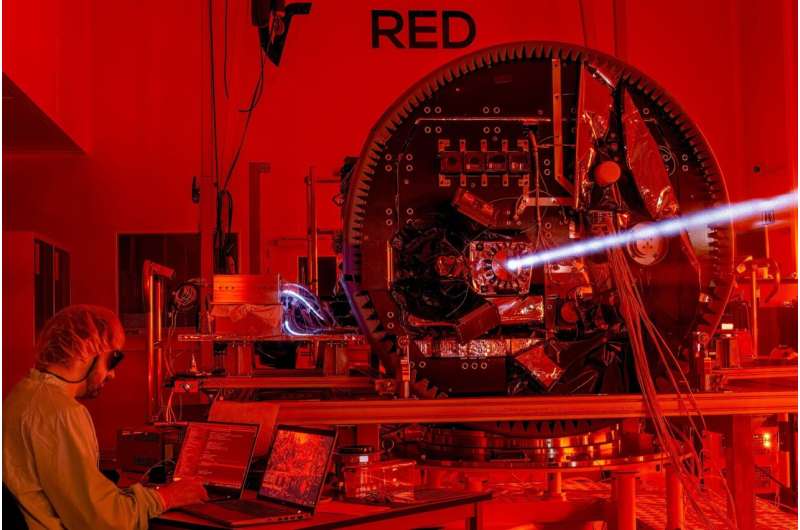
An infrared view of a laser-based test campaign—taking place at Redwire Space in Kruibeke, Belgium—which represents crucial preparation for ESA’s precision formation flying mission, Proba-3.
Later this year, two satellites will be launched together into orbit to maintain formation relative to each other down to a few millimeters, creating an artificial solar eclipse in space. Proba-3’s ‘Occulter’ spacecraft will cast a shadow onto the other ‘Coronagraph’ spacecraft to block out the fiery face of the sun and make the ghostly solar corona available for sustained observation for up to six hours per 19.5-hour orbit.
However to maintain the position of a shadow just a few centimeters across on the Coronagraph satellite from the Occulter satellite around 150 m away, the two satellites rely on a suite of sensors, including inter-satellite radio links, GNSS, visual imaging, and—for the most precise positioning at closest range—a laser metrology (or ‘measurement of measurement’) system. This system will shoot a laser from the Occulter spacecraft toward a corner cube retroreflector placed on the face of the Coronagraph spacecraft for tracking of relative position and attitude (pointing direction), achieving millimeter precision.
“To calibrate Proba-3’s laser metrology system, its performance was tested within the 60-m long Redwire cleanroom,” explains Damien Galano, Proba-3’s mission manager. “The Coronagraph’s laser was reflected off a retroreflector and the resulting positioning measurements checked against absolute ‘ground truth’ using a separate laser tracking system.”
This mission is being put together for ESA by a consortium led by Spain’s Sener, with participation by more than 29 companies from 14 countries. The Proba-3 platforms have been designed by Airbus Defence and Space in Spain and satellite integration by Redwire in Belgium. GMV in Spain is responsible for Proba-3’s formation flying subsystem, while its main coronagraph instrument comes from Belgium’s Centre Spatial de Liège, CSL. Proba-3 is due to be launched by PSLV-XL launcher from India in September.
Provided by
European Space Agency
Proba-3’s laser-precise positioning (2024, March 1)
retrieved 2 March 2024
from https://phys.org/news/2024-03-proba-laser-precise-positioning.html
part may be reproduced without the written permission. The content is provided for information purposes only.